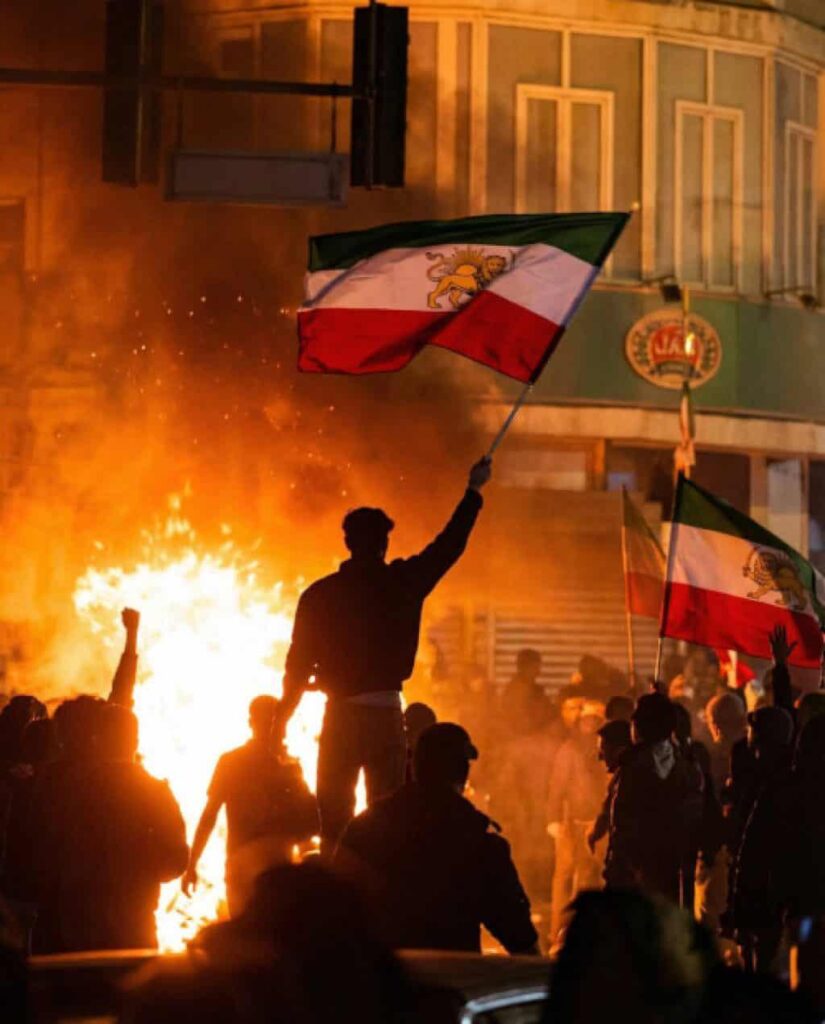Author: Chloe Schuber, Operations Assistant : Strengthening Democracy Desk
With the UK general elections now over, it is maybe timely to reflect on the plethora of religious groups that have put forth manifestos, or general guidance trying to achieve a) awareness of their concerns, and b) lobbying MPs who were desperate to win votes often in marginal seats with ultimatums. While the goal may be noble and certainly common practice across the world, especially in secular countries, the question arises of where the intersection between religion and democracy becomes a problem or even oversteps boundaries. This article will compare and analyse the five published religious manifestos, their key demands, and if some stand out as more problematic, needing to be deconstructed further.
I will provide an overview of the religious manifestos as well as their key verticals or demands.
The Christian manifesto emphasises social justice, poverty alleviation, and equality. Supporting organisations such as Cafod call for the cessation of new oil and gas licenses alongside the restoration of the UK’s aid budget to 0.7% of gross national income (decreased to 0.5% since 2020), reflecting a strong commitment to environmental sustainability and a push for the United Kingdom to continue aiding low-income, vulnerable countries. All perfectly noble at first glance.
The Sikh manifesto focuses on key and pressing issues such as hate crimes (against Sikhs), representation, and perceived historical justice, including the 1984 Amritsar conflict between the Indian State, and separatist militants who had barricaded themselves into the Golden Temple fully armed dreaming of Khalistan. There was an ask for representation in public and political life, alongside recognition of the Sikh’s contribution to British society. The manifesto calls for further safety measures against their perceived lived religious discrimination. It is worthy to note that Sikh Federation who authored the report themselves have tenuous links to what the Bloom report called Pro-Khalistan extremists (PKEs).
The Islamic manifesto, outlined by the Muslim Council of Britain (MCB), takes the form of a website. It presents both key commitments alongside an analysis of all candidates and their alignment with those commitments. Ten key commitments for candidates include a push for further inclusivity, support for international peace, and better access to housing and healthcare for the Muslim community. Specific issues such as combating Islamophobia, the recognition of Palestine and call for an immediate ceasefire, and the need for equitable access to all UK social services are highlighted. Like all other religious minorities’ manifestos, the call for further security regarding religious discrimination is placed at the forefront. Once again, it is worth noting that the MCB has had its fair share of controversy with apparent direct connection with, and tacit support for Islamists. The Home Office has generally kept the MCB at arm’s length for these reasons.
The Hindu Manifesto, developed by Hindus for Democracy, an organisation we have analysed in depth in another article here, outlines seven key demands. These include the recognition of anti-Hindu hate as hate crimes, the protection of Hindu temples, and improved representation of the religion in education. A need for streamlined visa processes for Hindu priests and elderly dependents has been called for, as well as the need for Hindu places of worship to receive equal treatment regarding security funding. This is the first time that a Hindu group has arisen during a general election making demands, and highlighting what they consider to be the need of Hindus.
The Jewish manifesto focuses on combating antisemitism, supporting Israel, and protecting Jewish communities. It calls for government action to address hate crimes and heighten security measures. The manifesto advocates for policies to support Jewish cultural and religious practices. The community’s engagement seems to reflect the need for stronger legal and social frameworks to combat antisemitism.
Now to cover a critical question, is it healthy for a democracy if religious groups campaign and deeply engage with politics on issues related to their faith, and their adherents rather than the ‘common good’? When religious groups mobilise around specific faith-based issues, a risk of societal fragmentation arises. At the end of this road lies sectarianism. Voting based on religious identity, especially when manifestos push for conformity to certain political choices straying from the core of religious values, undermines individual autonomy as it puts pressure and adds to the risk of division within these communities. The problem seems to intensify with specific demands put forth, whom, between the lines, posit voting a certain way makes you a ‘good’ member of a faith as community leaders have decided to advocate a particular policy, whether it may be through a specific interpretation of religious texts or even political opinions and biases formed over decades within the country at stake. I wish to outline two examples to demonstrate the point. to underline the conscient choice of these religious groups to include in their manifestos political and dividing opinion on certain issues.
Firstly, the Christian manifesto has a strong position of support on conversion therapy. Whilst explaining that they do not believe in the extreme tactics the LGBT communities have drawn it out to be, they believe this practice should be protected. On a very basic level, it is hard for many Christians to stand behind that as conversion therapy has proven to go against freedom from persecution and discrimination based on sexuality. Whether or not the actual practices go against human rights is a more delicate and uncertain discussion, which is beyond the scope of this short piece.
Similarly, on another religious manifesto, the Jewish one, the choice to put as one of the key demands the support for Israel amidst heavy political debates and a certain nuance agreed upon by many, including international organisations and politicians, shows the refusal to take part in this constructive, nuanced solution-building process of this war. The same can be said about the Muslim manifesto which has significant overtones for Palestine. Whilst obviously some consequences related to this war are undeniable and factual such as the rise in antisemitism and murder of Israelis by Hamas terrorists, the choice from the Board of Deputies of British Jews to ignore the flip side of this war shuts out part of the Jewish community. An overwhelming number of Jewish individuals have come forth in pro-Palestinian support. In the same vein, not every Muslim neccessarily demands for their Member of Parliament to put Gaza at the front and centre of their agenda. The choice of the Jewish and Muslim manifesto to blindly ignore the faults of Israel, and Hamas alike, that the world seems to have put in the spotlight shows an unwillingness to really engage in a discussion. The Jewish manifesto advocates for a dual-state solution but simultaneously calls out anti-Israel bias and ‘Reject politically motivated attempts to falsely label Israel’s response to the worst terror attack in its history as a “genocide”’. The Muslim manifesto, on the other side, does not write any paragraphs reflecting opinions or reflections on this situation, rather they put forth bullet points demands that amongst others, do not mention the attacks made by Hamas on Israel. This conflict is only one example of how political and damning divides within religious communities can go, creating this alienated feeling for some within their polarised religion, as the battling and shaming of each other fuels politics.
The religious manifestos put forth in the 2024 UK general elections do reflect a diversity of concerns and aspirations by these faith communities and provide a platform for engagement. However, it is important to monitor and point out when these demands do not align with democratic principles such as inclusivity and equality within a political system. The challenge remains to balance the legitimate concerns of these communities with demands leaning more towards a desire for a secular and inclusive political sphere. By maintaining a nuanced and critical approach to the relation between religion and political life, we can ensure the upholding of democracy allowing for politics to justly care and listen to all of its citizens.



